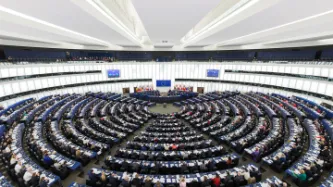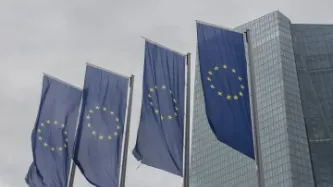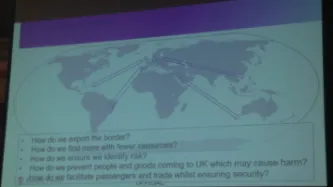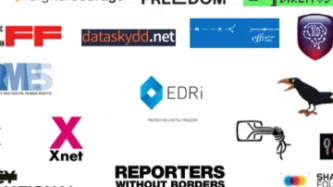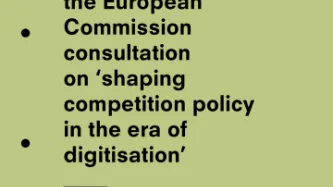Search
Content type: Examples
Data-driven wellbeing audits are becoming common in classrooms in Denmark, which has long invested heavily in digital teaching aids and interactive learning. In the last few decades, depression among Danish children has sextupled, and a quarter of ninth-graders report having attempted self-harm. Platforms such as Woof offer teachers regular feedback based on anonymous self-reports. Similar systems in the US extend to surveilling students' emails, chat, and searches.Experts are concerned that…
Content type: Examples
The rise of hybrid work has led to a rise in "bossware": increasingly intrusive technology that monitors employees, tracks their locations, and watches or listens to office workers via cameras and microphones. 90% of such systems can give employers a list of everything a worker has done that day. The cost of such systems has dropped, as has employer trust in staff. The increasing surveillance, now with AI predictive functions, threatens job security and increases the power companies have over…
Content type: Examples
EU health commissioner Stella Kyriakides told health ministers in late May that they could not count on immunity certification when lifting cross-border travel restrictions within the EU. Prevention measures such as physical distancing, robust testing strategies, and ensuring health care capacity were more important. Contact tracing apps might help, but would need to be interoperable.
https://www.politico.com/news/2020/05/25/european-union-commissioner-coronavirus-immunity-certificates-arent-…
Content type: Advocacy
To the Members of the European Parliament and to the Committee on Budgets of the European Parliament
The EU urgently needs to step up and provide assistance to protect the health and safety of people trapped in camps on the Greek islands - not just to protect their welfare, but to contain the virus itself as a matter of global public health.
However, as we detail in the briefing below, the current European Commission proposal for funds allocation is insufficient to ensure the safety of…
Content type: Examples
8 europeans telecoms providers (Vodafone, Deutsche Telekom, Orange,Telefonica, Telecom Italia , Telenor, Telia and A1 Telekom Austria) have agreed to share mobile phone location data with the European Commission to track the spread of the coronavirus.
The Commission said it would use anonymsed data and aggregated mobile phone location to coordinate the tracking of the virus spread. They also announced the data would be deleted after the crisis.
Source: https://www.reuters.com/article/us-…
Content type: Examples
The European Commission urged Europe's telecoms giants, including Deutsche Telekom and Orange, to share their users' mobile data streams from across the region to help predict the spread of the coronavirus "for the common good". In a letter in response, Dutch Renew MEP Sophie In't Veld stressed that that data must remain anonymised, and questioned the usefulness of aggregating very large quantities of location data from millions of Europeans who are locked down. Meanwhile, questions are being…
Content type: News & Analysis
Photo: The European Union
On 2 September 2019, Privacy International, together with 60 other organisations, signed an open letter to the European Parliament to express our deep concern about upcoming EU policy proposals which undermine the EU’s founding values of human rights, peace and disarmament.
Since 2017, the EU has diverted funds towards security research and security capacity-building in countries around the world. The proposal for the EU's next budget (2021-2027) will…
Content type: Examples
In September 2018, EU’s antitrust watchdog, the European Commission, launched a preliminary investigation into how the platform uses data about merchants. Margrethe Vestager, EU Competition Commissioner said that the informal probe concerns the e-commerce group’s dual role as a competitor while simultaneously acting as a host to third-party merchants, who sell goods on Amazon’s websites. “The question here is about the data,” Ms. Vestager said.
The Amazon marketplace investigation follows up…
Content type: Press release
The Irish Data Protection Commission has today launched an inquiry into the data practices of ad-tech company Quantcast, a major player in the online tracking industry. PI's 2018 investigation and subsequent submission to the Irish DPC showed how the company is systematically collecting and exploiting people's data in ways people are unaware of. PI also investigated and complained about Acxiom, Criteo, Experian, Equifax, Oracle, and Tapad.
PI welcomes this announcement and its focus on…
Content type: News & Analysis
This piece was first published in GDPR today in March 2019.
Elections, referendums and political campaigns around the world are becoming ever more sophisticated data operations. This raises questions about the political use and abuse of personal data. With the European Union elections fast approaching and numerous national and local elections taking place across EU Member States, it is essential that the legal frameworks intended to protect our personal data do just that.
Member State…
Content type: News & Analysis
Photo by DAVID ILIFF. License: CC-BY-SA 3.0
Between 23 and 26 May 2019 Europeans will be voting to elect members of the European Parliament.
Since the last elections in 2014, much has changed within and without the European Union: the rise of nationalism and Euroscepticism, the protracted armed conflict in Ukraine and the occupation of Crimea by Russia, the new political orientation of the United States, just to name a few.
Among the new challenges facing these elections is…
Content type: Long Read
This image was found here.
Spain is holding a national general election on April 28 (its third in four years). Four weeks later Spaniards will again go to the polls to vote in the European Parliament elections. At Privacy International we are working to investigate and challenge the exploitation of people’s data in the electoral cycle including in political campaigns. This includes looking at the legal frameworks governing the use of data by political parties and their…
Content type: News & Analysis
Mr. Zuckerberg has discovered the usefulness of regulation to protect our personal data. After years of lobbying against the adoption of the EU General Data Protection Regulation (GDPR) and of lamenting the ills of its implementation, Facebook seems ready to embrace European data protection law and even spread it across the world. Similar sentiments were recently expressed by Twitter.
This is a welcome change. Maybe the fines recently imposed by regulators and the increased scrutiny of…
Content type: Examples
In January 2019, Facebook announced it would extend some of the rules and transparency tools it developed for political advertising for upcoming spring elections in Nigeria, Ukraine, India, and the EU. In Nigeria, the site will bar electoral ads from advertisers outside the country where the election is being held, build a searchable library of electoral ads and retaining them for seven years, check the identity of individuals buying political ads against government-issued documents, and…
Content type: Examples
In the run-up to the May 2019 European Parliament elections, Google announced it would launch a new set of transparency tools to combat voter manipulation. Before being allowed to buy advertising on Google platforms, campaigns will be required to verify their identity, and approved ads will be required to display the identity of their purchaser. Google will build a real-time searchable database of all political ads and show their purchasers, costs, and demographics. Facebook announced similar…
Content type: Long Read
The UK border authority is using money ring-fenced for aid to train, finance, and provide equipment to foreign border control agencies in a bid to “export the border” to countries around the world.
Under the UK Border Force’s “Project Hunter”, the agency works with foreign security authorities to bolster their “border intelligence and targeting” capabilities with UK know-how and equipment.
As well as the provision of equipment and training, the Border Force is also advising countries on…
Content type: News & Analysis
At the beginning of November 2018, the first GDPR-related privacy and freedom of expression case arose in Romania in connection to the publication by the RISE Project of several articles about a corruption investigation. The articles reported a close relationship between a road construction company that is currently under investigation for fraud, European funds, and a high-profile politician.
Shortly after the first article was published, the Romanian data protection authority (“ANSPDCP”) sent…
Content type: Advocacy
UPDATE 13 February: Facebook announced that it would open up its Ad Archive API next month. Read Mozilla's statement about the response here.
On 11 February 2019, Privacy International joined Mozilla and 36 organisations in an open letter to Facebook call on Facebook to make good on its commitments to provide more transparency around political advertising ahead of the 2019 EU Parliamentary Elections.
Specifically, our open letter urges Facebook to:
Roll out a functional, open Ad…
Content type: Examples
On the night of June 23, 2016, as the polls closed Britain's Sky News broadcast what sounded like a concession statement from Nigel Farage, the leader of the campaign to leave the EU, plus a YouGov exit poll indicating that the country had voted to remain; over an hour later, Farage reiterated his concession to the Press Association. The combination pushed up the pound on the world's foreign exchanges. A few hours later, when the true result was announced, the pound crashed - but in between a…
Content type: News & Analysis
European leaders met last week in Brussels to discuss what is supposed to be two separate issues, the next trillion euro-plus budget and migration. In truth, no such separation exists: driven by nationalists and a political mainstream unable to offer any alternative but to implement their ideas, the next budget is in fact all about migration.
This strategy contained within the budget will get the approval of Hilary Clinton, who recently told the Guardian that ‘Europe needs to get a handle on…
Content type: Advocacy
Image source
The EU extensively bolsters the surveillance and border control capabilities of governments around the world – and is set to dramatically increase such support. Below, we look at how some of these existing funds are being used, how their proposed expansion will undermine people’s privacy around the world for decades to come, and what needs to be done about it.
Migration has dominated the recent EU agenda and will once again be central during this week’s European Council meeting…
Content type: Advocacy
Consumers benefit from the existence of competitive markets, in which they can freely choose among a wide range of products and services. Competition policy plays an important role in this regard by ensuring that competition is not disrupted in a way that can harm consumers directly (e.g. leading to price increases or less choice) or indirectly (e.g. weakening competition as a process by hampering the ability of firms to compete on the merits).
Content type: Press release
Consumer groups, NGOs and industry call jointly for the Council of the EU to advance ePrivacy reform
On Monday 3 December, a coalition of more than 30 consumer groups, NGOs and industry representatives sent a letter to EU Ministers and the Council of the EU calling for the conclusion of the negotiations on the reform of the ePrivacy legislation.
The letter was sent prior to yesterday's (4 December) meeting in the TTE Council, with signatories sharing concerns over the slow progress of the negotiations in the Council of the EU despite the repeated scandals that demonstrate the clear and…
Content type: News & Analysis
Our team wanted to see how data companies that are not used to being in the public spotlight would respond to people exercising their data rights. You have the right under the EU General Data Protection Regulation ("GDPR") to demand that companies operating in the European Union (either because they are based here or target their products or services to individuals in the EU) delete your data within one month. We wrote to seven companies and requested that they delete our data, and we've made…
Content type: Advocacy
Today, Privacy International has filed complaints against seven data brokers (Acxiom, Oracle), ad-tech companies (Criteo, Quantcast, Tapad), and credit referencing agencies (Equifax, Experian) with data protection authorities in France, Ireland, and the UK.
It’s been more than five months since the EU’s General Data Protection Regulation (GDPR) came into effect. Fundamentally, the GDPR strengthens rights of individuals with regard to the protection of their data, imposes more…
Content type: Advocacy
Privacy International encourages the European Commission to consider ways to reform or at least re-interpret competition regulation to address the data protection implications and the broader societal challenges posed by the exploitation of data by big corporations. This includes, for example, systematic consideration of data protection issues (including though consultation with relevant data protection authorities and organisations protecting privacy and consumer rights) when assessing mergers…
Content type: Long Read
Yesterday, the European Court of Human Rights issued its judgement in Big Brother Watch & Others V. the UK. Below, we answer some of the main questions relating to the case.
What's the ruling all about?
In a nutshell, one of the world's most important courts, the European Court of Human Rights, yesterday found that certain UK laws about how intelligence agencies can spy on our internet communications breach our human rights. These surveillance laws have meant that the UK intelligence…
Content type: Report
Countries with powerful security agencies are spending literally billions to equip, finance and train security and surveillance agencies around the world — including authoritarian regimes. This is resulting in entrenched authoritarianism, further facilitation of abuse against people, and diversion of resources from long-term development programmes.
Privacy International's report 'Teach 'em to Phish: State Sponsors of Surveillance' examines this problem closely, providng examples from US, China…






